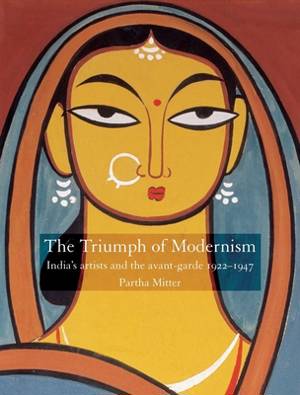
- Afhalen na 1 uur in een winkel met voorraad
- Gratis thuislevering in België vanaf € 30
- Ruim aanbod met 7 miljoen producten
- Afhalen na 1 uur in een winkel met voorraad
- Gratis thuislevering in België vanaf € 30
- Ruim aanbod met 7 miljoen producten
The Triumph of Modernism
India's Artists and the Avant-Garde, 1922-47
Partha MitterOmschrijving
The tumultuous last decades of British colonialism in India were catalyzed by more than the work of Mahatma Gandhi and violent conflicts. The concurrent upheavals in Western art driven by the advent of modernism provided Indian artists in post-1920 India a powerful tool of colonial resistance. Distinguished art historian Partha Mitter now explores in this brilliantly illustrated study this lesser known facet of Indian art and history.
Taking the 1922 Bauhaus exhibition in Calcutta as the debut of European modernism in India, The Triumph of Modernism probes the intricate interplay of Western modernism and Indian nationalism in the evolution of colonial-era Indian art. Mitter casts his gaze across a myriad of issues, including the emergence of a feminine voice in Indian art, the decline of "oriental art," and the rise of naturalism and modernism in the 1920s. Nationalist politics also played a large role, from the struggle of artists in reconciling Indian nationalism with imperial patronage of the arts to the relationship between primitivism and modernism in Indian art. An engagingly written study anchored by 150 lush reproductions, The Triumph of Modernism will be essential reading for scholars of art, British studies, and Indian history.
Specificaties
Betrokkenen
- Auteur(s):
- Uitgeverij:
Inhoud
- Aantal bladzijden:
- 256
- Taal:
- Engels
Eigenschappen
- Productcode (EAN):
- 9781861893185
- Verschijningsdatum:
- 1/12/2007
- Uitvoering:
- Paperback
- Formaat:
- Trade paperback (VS)
- Afmetingen:
- 193 mm x 252 mm
- Gewicht:
- 857 g

Alleen bij Standaard Boekhandel
Beoordelingen
We publiceren alleen reviews die voldoen aan de voorwaarden voor reviews. Bekijk onze voorwaarden voor reviews.









